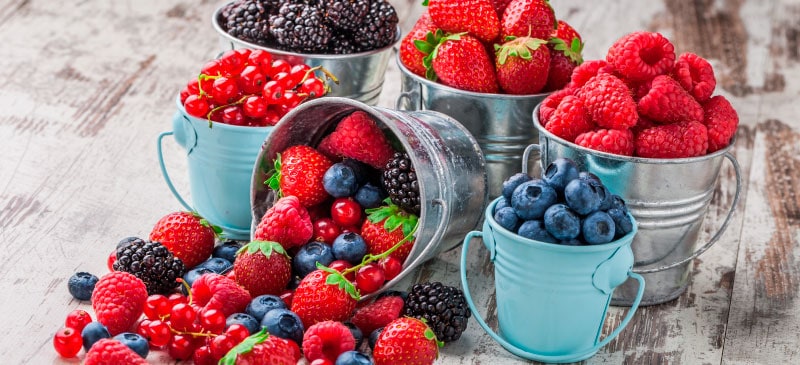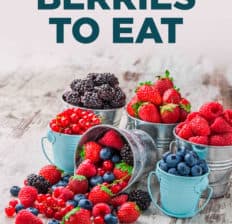This Dr. Axe content is medically reviewed or fact checked to ensure factually accurate information.
With strict editorial sourcing guidelines, we only link to academic research institutions, reputable media sites and, when research is available, medically peer-reviewed studies. Note that the numbers in parentheses (1, 2, etc.) are clickable links to these studies.
The information in our articles is NOT intended to replace a one-on-one relationship with a qualified health care professional and is not intended as medical advice.
This article is based on scientific evidence, written by experts and fact checked by our trained editorial staff. Note that the numbers in parentheses (1, 2, etc.) are clickable links to medically peer-reviewed studies.
Our team includes licensed nutritionists and dietitians, certified health education specialists, as well as certified strength and conditioning specialists, personal trainers and corrective exercise specialists. Our team aims to be not only thorough with its research, but also objective and unbiased.
The information in our articles is NOT intended to replace a one-on-one relationship with a qualified health care professional and is not intended as medical advice.
12 Healthiest Berries to Eat + Their Benefits
May 20, 2024

What fruits are loaded in health-promoting antioxidants; contain disease-fighting phytochemicals; provide fiber, amino acids and micronutrients; and are so versatile they can be added to almost any sweet recipe? Berries.
Berries are among the healthiest foods on the planet because of their beyond impressive nutrition profiles and antioxidant content. Adding them to your diet supports a healthy immune system, along with digestive, cardiovascular and cognitive functions, while keeping you full and boosting energy levels.
What types of berries are the healthiest? Here’s a breakdown of the best berry options and how to use them in everyday recipes.
1. Blueberries
Perhaps the most well-known berry out there, the blueberry is considered a top superfood because of its antioxidant content and nutritional value. The antioxidants in blueberries fight oxidative stress that can cause major health issues, including cancer, neurodegeneration and early aging.
Blueberries are also beneficial because of their fiber content, aiding digestion and supporting weight loss. They are used in a variety of ways, including as an ingredient in baked goods, yogurt parfaits, oatmeals, salads and more.
2. Blackberries
Rich in vitamin C, vitamin K and manganese, blackberries support immune system function, reduce inflammation and promote a healthy cardiovascular system. Blackberries also have a ORAC (Oxygen Radical Absorbance Capacity) score of 5,905, making them one of the highest antioxidant foods that has been shown to exhibit anticancer effects.
You can try the marionberry variety as well.
3. Goji Berry
Goji berry has been used in Traditional Chinese Medicine for over 2,000 years. Studies show that it increases energy levels, sleep quality, focus and mental acuity.
This is due to the berry’s phytonutrient, vitamin and mineral content, which includes over 100 percent of your daily value of vitamin A, plus 11 essential amino acids. Goji berries are consumed to support heart health, fight low mood, protect skin and eye health, and improve immunity.
4. Elderberry
Elderberry has gained attention for its ability to stimulate the immune system and fight respiratory conditions, such as the common cold and flu. Elderberry syrup or supplements are used to reduce cold and flu duration and improve symptoms.
The berry has anti-inflammatory, antioxidant and antiviral effects, making it a useful infection remedy. Additionally, elderberry can help lower blood sugar, promote detoxification and ease allergies.
5. Acai Berry
Acai bowls recently became all the rage, but how much do you know about this Brazilian fruit? Acai berries are very high in antioxidants (including anthocyanins that protect heart health and improve immune system function), electrolytes, dietary fiber, trace minerals, B vitamins, amino acids and plant sterols.
Like many berries, acai berry’s antioxidant count is impressive and helps the body be more resilient to the effects of free radical damage.
6. Strawberries
Eating one cup of strawberries a day provides well over your daily recommended intake of vitamin C, as well as manganese, folate, potassium and magnesium. Strawberry nutrition is also rich in antioxidants, including quercetin, tannins and polyphenols.
Strawberries have been proven to help improve immune system function, fight cancer and heart disease, improve skin health, and benefit cognitive function.
7. Raspberries
The raspberry is another antioxidant powerhouse, and it’s high in micronutrients, including vitamin C, manganese, vitamin K and magnesium. Research suggests that adding raspberries to a well-balanced diet may help with weight loss by boosting metabolism and aiding digestion.
Raspberry nutrition may also help with the management of diabetes because it has a low glycemic index and little impact on blood sugar levels, while being high in fiber.
8. Cranberries
Cranberries contain one of the highest concentrations of antioxidants of any fruit, making them a powerhouse for protecting cells against free radical damage that can cause chronic disease. They are well-known as a natural remedy for urinary tract infections, which is due to the berries’ antibacterial properties.
Cranberries also benefit the digestive tract, providing detoxifying effects that help eliminate toxins from the body. They can benefit cognitive function as well, according to research.
9. Huckleberry
Huckleberries are similar to blueberries and have an impressive nutrition profile, serving as an excellent source of phytochemicals, like anthocyanin and polyphenols. Huckleberries also contain B vitamins and iron, which support metabolic processes.
The huckleberry is mildly tart but sweet, and it’s often used to make jams and baked goods.
10. Barberry
Barberries aren’t as popular, but they’re equally beneficial to the fruits you commonly see in the produce section of your local supermarket. They are a rich source of vitamin C and contain beneficial alkaloids, including berberine.
The barberry has soothing properties, works to reduce inflammation and fights infections. It’s typically consumed in tea, capsule or tincture forms for its therapeutic properties.
11. Mulberry
You’ll see mulberry used in smoothies, pies and other dessert recipes. It’s rich in fiber, vitamin C, vitamin K and iron.
Research suggests that mulberries help stabilize blood sugar levels, protect liver health, support healthy digestion and reduce cholesterol levels.
12. Juniper Berries
Not technically berries but clearly thought of as such, juniper berries are actually female seed cones that look like other berries (hence the name) but are used as a spice. They serve as a natural antiseptic and antioxidant, and the fruit’s essential oils are used to improve skin conditions, boost digestion and aid sleep.
When using juniper as a spice, it can be added to sauces and marinades for a peppery flavor.
How to Add Berries to Diet
Berries are a versatile bunch. They can be eaten alone as a healthy snack or added to a slew of recipes, including baked goods, frozen treats, smoothies and salads.
Here are some of the best ways to add berries to your diet:
Healthy Breakfast
Whether you’re preparing pancakes or yogurt parfaits, berries make a filling and nutritious addition to any healthy breakfast. Here’s how to add berries to your diet in the morning:
Baked Goods
Healthy berries add natural sweetness to baked goods, while providing important nutrients. They work well in muffins, cupcakes, pies, cakes and more. Try these tasty recipes:
- Strawberry Shortcake Cupcakes
- Gluten-Free, Easy Blueberry Cobbler
- Gluten-Free Blueberry Muffins
- Paleo Raspberry Linzer Cookies
Frozen Treats
Berries make a great addition to frozen desserts, like ice cream, frozen yogurt, gelato and ice pops. Some awesome examples include:
Smoothies
Homemade smoothies can be made with fruits, leafy greens, nuts and powders to boost energy, supply nutrients and support your immune system. Some recipe with berries are:
Drinks
Drinks made with the healthiest berries are a refreshing (or cozy) way to consume powerful antioxidants and micronutrients. Some healthy drinks recipes include:
Syrups
Berries are often used to make syrups that are not only to be used on foods, but therapeutically, too. Elderberry, for example, is used in syrup form to boost immune system function and fight respiratory conditions, like the flu.
To make a syrup, berries are typically simmered in water for about an hour. Then allow the liquid to cool, and drain it with a strainer.
It’s common to add additional herbs or spices to berry syrups, such as cinnamon and clove.
Jams and Sauces
There’s something very comforting about berry jams or sauces. They are rich and sweet and can be added to homemade breads, loafs, muffins and more. An easy recipe to try is this Cranberry Sauce with Pecans recipe.
Salads
Berries work well in summer salads, especially when mixed with seeds or nuts that offer a nice crunch. Strawberries, blueberries, raspberries, cranberries and blackberries are some of the most popular additions to salads.
Here are some easy recipes:
Conclusion
- Adding berries to your diet is an easy way to increase your nutrient intake and help fight chronic disease.
- Some of the best types of berries for health include blueberries, strawberries, elderberries, blackberries and cranberries.
- Eating berries is easy. Their sweet flavor makes them the perfect addition to yogurt, oatmeal, smoothies, pies, muffins, pancakes, salads and frozen treats.







